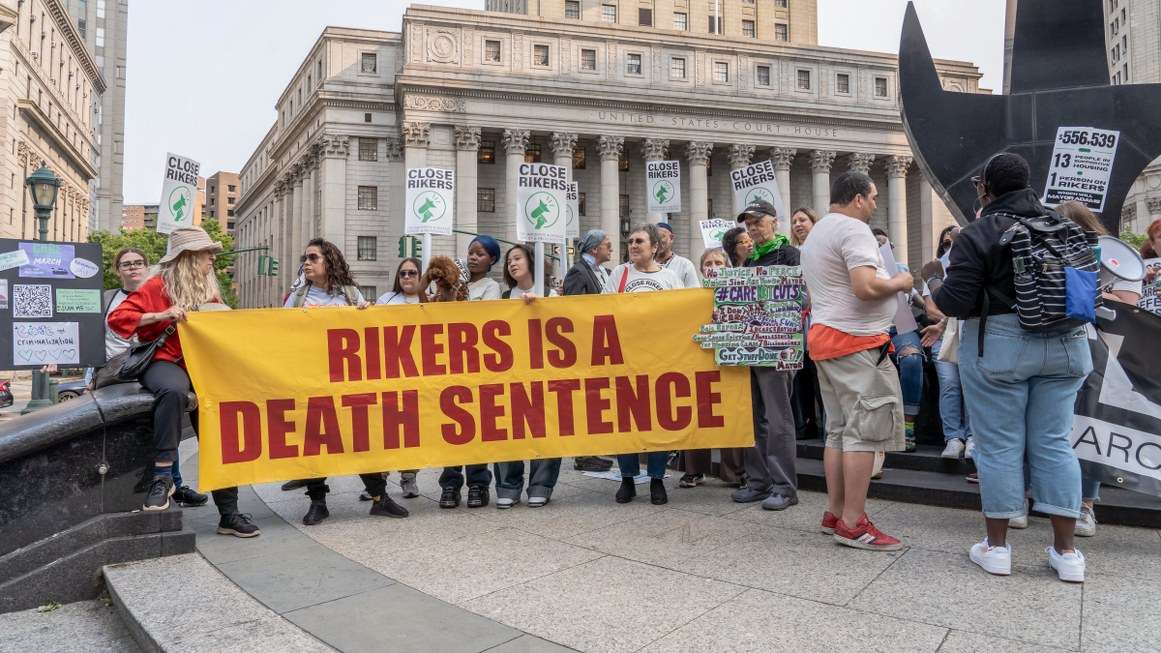Federal Judge Warns New York City to Prepare for Rikers Takeover
A significant legal decision has emerged regarding the management of New York City’s Rikers Island jail complex. A federal judge has ordered the city to formulate plans for transferring control of Rikers to a third-party receiver, following a ruling that found the city’s Department of Corrections (DOC) in civil contempt for failing to meet multiple obligations intended to improve the dire conditions at the facilities. Chief U.S. District Judge Laura Taylor Swain expressed her inclination to impose a receivership, citing that violence and fatalities within Rikers have escalated since a court-enforced reform plan was established in 2015. Despite the city’s pledges to address the crisis, the judge noted an alarming increase in violence, self-harm incidents, and custodial deaths, stating that the DOC was in violation of 18 provisions laid out in a previous consent agreement that emerged from a class action lawsuit over guard brutality filed in 2012.
The Legal Aid Society of New York, which initially instigated the reform efforts, welcomed the court’s ruling, characterizing it as a historic decision evidencing the DOC’s continuous failure to ensure safety within Rikers. They emphasized the entrenched culture of brutality that has resisted both judicial and political reforms over the years. An array of reports from various stakeholders, including alarming accounts from lawmakers and public defenders, has illustrated that conditions within Rikers have deteriorated, showcasing incidents of violence, neglect, and systemic corruption. The revelations of organized violence among inmates, exacerbated by the indifference of correctional officers, have brought stark attention to the appalling conditions within the facility.
New York City’s opposition to the receivership reflects its reluctance to cede control over Rikers, despite the overwhelming evidence highlighting the DOC’s shortcomings. The court established that the DOC’s management has led to an acute and persistent threat to both inmates and staff, emphasizing that the operational practices have fallen drastically short of the required standards. The judge underscored the systemic issues plaguing Rikers, including chronic violence, inadequate suicide prevention measures, and a lack of effective oversight. The findings underscored that the DOC had created conditions that significantly endangered the lives of both incarcerated individuals and correctional staff, further eroding public trust in the facility’s management.
Judge Swain had previously shown restraint regarding requests for federal receivership but has now expressed a clear lack of confidence in the city’s ability to rectify the ongoing crisis. The judge articulated concerns regarding the management structure and staffing levels at the DOC, suggesting that the city’s approach and resources have not been effectively directed to address the profound issues at Rikers. Swain indicated that continued insistence on the city’s compliance would likely result in ongoing confrontation and delays without substantial changes. She highlighted that the management practices in place have failed to produce meaningful improvements in terms of safety and order, thus necessitating the need for an independent third-party oversight.
In light of the systemic failures documented over the years, the judge has mandated that all parties involved in the litigation, including the court’s monitoring team, draft proposals regarding the formation of a federal receivership. These proposals are to include legal arguments for and against the receivership arrangement, reflecting a collaborative yet contested approach to addressing the existing structural inadequacies at Rikers. The deadline for the memos has been set for January 14, 2025, symbolizing a critical juncture in the reformation efforts aimed at rectifying the profoundly systematic issues within the jail complex.
The ongoing plight of individuals incarcerated in Rikers highlights the broader challenges faced by correctional facilities across the United States, where systemic neglect and bureaucratic inertia often lead to dire consequences for vulnerable populations. This situation encapsulates a profound crisis in ensuring humane treatment within correctional institutions, raising questions about accountability and the effectiveness of reform initiatives. The scrutiny placed on Rikers Island serves as a warning to other jurisdictions grappling with similar issues, emphasizing the urgent need for substantial changes to address not only the conditions within correctional facilities but also the underlying systemic issues that allow such environments to persist unchecked.
Share this content:












Post Comment